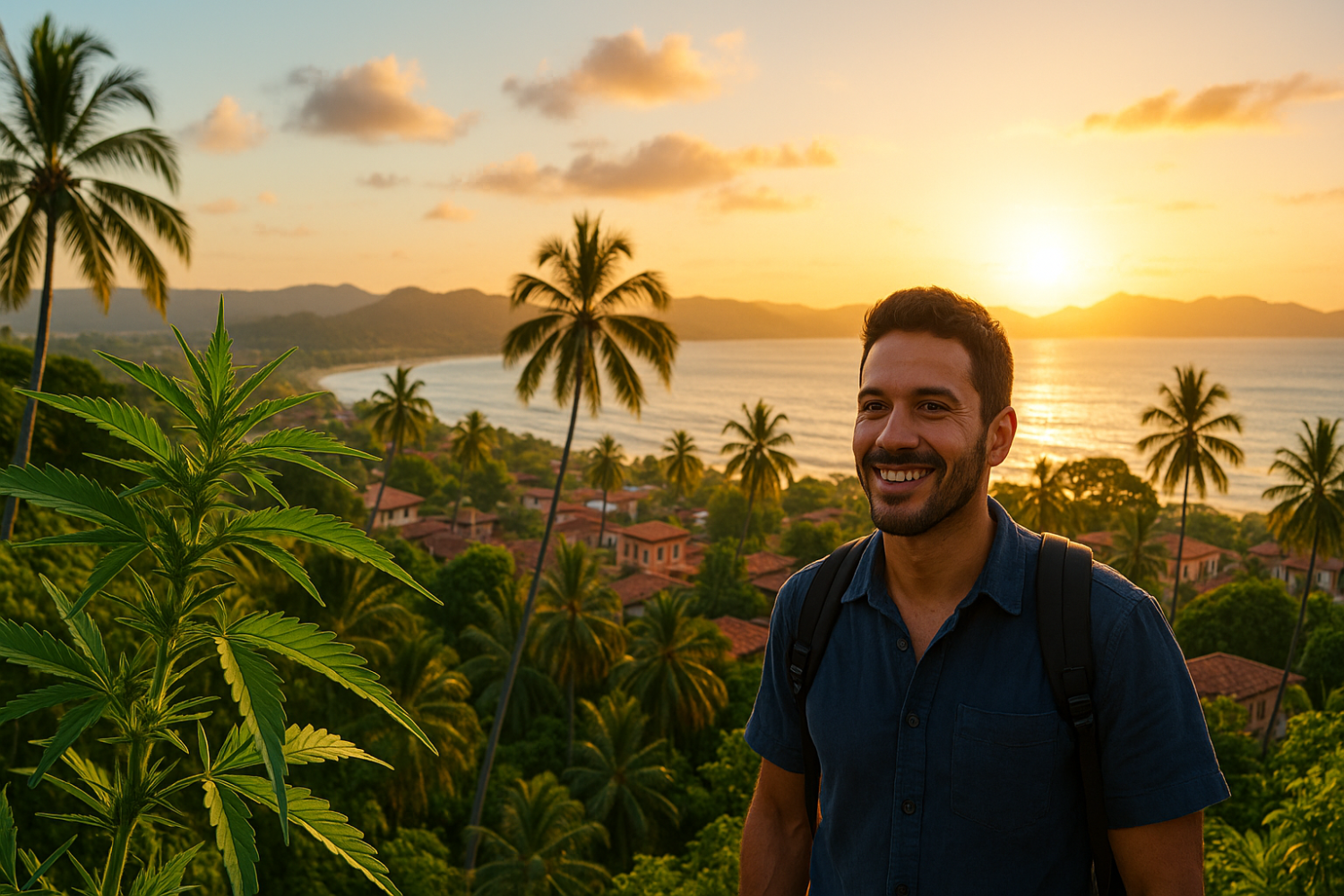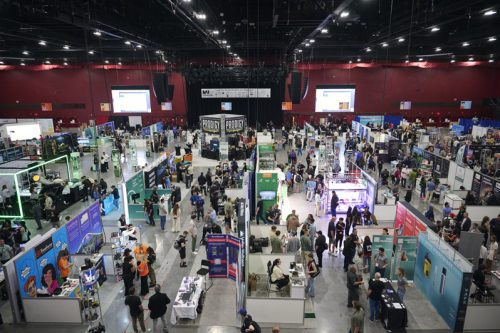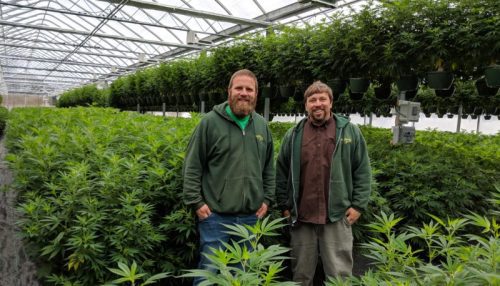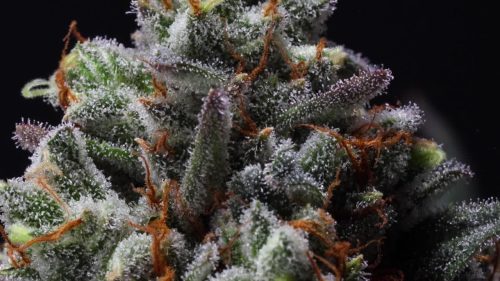Latin America is entering a new era of travel, one shaped by plant-based wellness, cultural authenticity, and a growing acceptance of cannabis across the region. As laws evolve and younger generations reclaim traditional herbal knowledge, destinations from Costa Rica to Colombia and Uruguay are becoming global examples of what intentional cannabis travel can look like.
This shift isn’t driven by party tourism or the old stereotype of travelers looking to “score.” It’s driven by curiosity, the desire to understand how the plant connects to land, community, food, agriculture, and creativity. And in Latin America, those connections run deep.
This guide walks through every Latin American country in the mainland region, focusing on current cannabis laws as of late 2025, how those laws affect visitors, and where cannabis culture is influencing food, music, wellness retreats, and travel.
Why Latin America Is Becoming a Global Hub for Cannabis-Curious Travelers
Travelers across North America and Europe are searching for more meaningful experiences. They want nature, cultural education, food, wellness retreats, and insight into local communities. Cannabis is becoming part of that journey because it already lives inside the region’s agricultural and cultural DNA.
Latin America’s appeal comes down to three major factors:
• Biodiversity and agricultural heritage
• Culturally embedded plant knowledge
• A political shift toward sensible cannabis reform
No single destination dominates the movement. Instead, each country brings something different.
Costa Rica: Wellness Travel Meets Emerging Cannabis Culture
Costa Rica is not fully legalized yet, but the country is shaping the conversation more than almost anywhere else in the region. Its long-standing reputation for eco-tourism, sustainability, and holistic retreats makes it the perfect home for cannabis-adjacent wellness experiences.
The real shift came with Law 10.113, which legalized medical cannabis and industrial hemp in 2022, followed by regulations that finally made medical products available in pharmacies in 2025. That framework sits on top of Costa Rica’s established wellness and adventure travel industry, so you are now seeing more retreats that blend yoga, nature, cacao, plant education, and evolving cannabis conversations.
For visitors, the line is clear: no legal recreational sales, no tourist access to medical channels, but a growing culture of plant based wellness, sustainability, and discreet consumption in surf towns and rainforest zones.
Across regions like Tamarindo, Nosara, Dominical, Puerto Viejo, and Monteverde, travelers are already encountering:
• Herbal wellness retreats
• Natural medicine workshops
• Yoga and meditation programs built around plant education
• Communities blending culture, food, cacao, and ancestral knowledge
Because Costa Rica’s culture already leans toward balance, clean living, and environmental respect, cannabis wellness fits naturally. As legislation continues moving forward, the country is poised to become one of the most influential cannabis travel destinations in the world.
Costa Rica is fast becoming one of Latin America’s most interesting cannabis wellness and eco tourism stories. Recreational cannabis is still illegal, but personal use in small amounts is effectively decriminalized, and police generally treat discreet consumption as a low priority issue.
Mexico
Mexico is the northern gateway to Latin America’s cannabis evolution. After a series of Supreme Court rulings, personal cannabis use and self cultivation for adults are constitutionally protected rights, but Congress still has not built a full commercial adult use framework.
In practice, small possession for personal use is decriminalized within narrow limits, cultivation for personal use can be protected through court orders, and selling or distributing weed remains illegal. That means you will see cannabis in music scenes, nightlife, border cities, and creative hubs like Mexico City, yet formal “weed tourism” is not legally established. Most regulated activity is still anchored in medical cannabis and low THC products, while activists and entrepreneurs push for a proper adult use market.
Belize
Belize is the most cannabis tolerant destination in Central America on paper. Since 2017, possession or use of up to 10 grams of cannabis on private premises is decriminalized for adults. Growing, importing, and selling remain crimes, which keeps everything in an informal, street driven market.
For travelers, that translates into a culture where weed is common on the islands and coastal hotspots, but buying it still technically means supporting an illegal supply chain. The government flirted with full legalization and cannabis tourism, including referendums, then pulled back, leaving Belize in a “decriminalized but not legal” holding pattern heading into 2026.
Guatemala
Guatemala remains one of the strictest cannabis environments in the region. Cannabis is illegal for both medical and recreational purposes, and there is no formal decriminalization threshold written into law. Possession, cultivation, and trafficking can trigger serious criminal penalties, and the country’s security narrative still frames drugs primarily through enforcement, not public health.
Culturally, you will find occasional underground cannabis use in creative and nightlife circles around Guatemala City or tourist hubs like Antigua, but nothing close to an open weed scene. For travelers, the move is simple: do not bring cannabis, do not buy cannabis, and do not assume decriminalization exists here the way it does in Mexico or South America.
El Salvador
In El Salvador, cannabis remains fully illegal. The government has doubled down on a hardline public security model, and there is no legal medical cannabis program, no decriminalization policy, and no regulated industry.
Any cannabis possession is risky. Tourism marketing focuses on surf, beaches, and investment projects, not cannabis culture, and the government has openly rejected drug liberalization efforts. If you are planning Central America trips around cannabis friendly destinations, El Salvador is not one of them in 2025.
Honduras
Honduras keeps cannabis strictly prohibited. There is no legal medical framework and no decriminalization. Cannabis laws are wrapped inside broader anti narcotics policy, and possession can be prosecuted with significant penalties, especially if officials suspect trafficking or distribution.
Because of that, there is very little open cannabis culture connected to tourism. Island destinations like Roatán or coastal regions may have some informal consumption in nightlife circles, but it is not something to center a trip around if you care about risk and compliance.
Nicaragua
Nicaragua also maintains a prohibition model. Cannabis remains illegal for both recreational and medical use, and the law offers no clear decriminalization buffer. Trafficking and possession can lead to long prison terms, and there is minimal public discussion about reform compared to Mexico, Colombia, or Argentina.
Tourism is built around beaches, colonial cities, and volcano adventures, not cannabis. Travelers should assume zero legal tolerance and avoid carrying or buying cannabis during their stay.
Panama
Panama is the first Central American country after Costa Rica to roll out a formal medical cannabis law. Law 242, passed in 2021 and implemented through regulations in the following years, created a controlled framework for medical cannabis cultivation, import, and distribution.
Recreational use is still illegal, and there is no decriminalization similar to Belize. For now, Panama’s cannabis story is about regulated medical products and pharmaceutical channels, not weed tourism. You might see more cannabis related conferences and corporate activity in Panama City before you see tourist facing lounges or tours.
Colombia
Colombia is one of the most advanced medical and industrial cannabis hubs in Latin America. Medical cannabis has been legal since 2016, with a robust licensing system for cultivation, extraction, and export. In 2025, the government finally closed a major gap by authorizing the sale of medical cannabis flower in pharmacies under Decree 1138, expanding access beyond oils and derivatives.
Recreational cannabis is decriminalized for personal use. Adults can possess up to 20 grams and cultivate up to 20 plants for personal consumption, although sale and commercial distribution remain illegal.
For travelers, that means you will see cannabis culture everywhere, from Medellín’s creative neighborhoods to Bogotá’s nightlife, plus tours, educational retreats, and farm visits that focus on wellness and agricultural heritage.
You still cannot legally buy recreational weed in a licensed shop, so any purchase is technically outside the regulated system.
Venezuela
Venezuela has a prohibition framework with a narrow decriminalization carve out. Cannabis is illegal and there is no legal medical program, but possession of less than 20 grams intended for personal or medical use is treated through administrative or health measures rather than automatic prison. Anything above that, or any indication of trafficking, carries serious penalties.
Politically, the government has publicly rejected the idea of cannabis legalization, framing it as incompatible with its drug policy. That creates a conservative environment where cannabis culture exists mostly in private and underground spaces. Weed tourism is not part of Venezuela’s current reality.
Ecuador
Ecuador is in transition. For years, possession of up to 10 grams was effectively decriminalized, and the constitution framed drug use as a health issue, not a crime.
However, in late 2023 the government eliminated the national “drug table” that defined personal use quantities, making recreational possession technically illegal again, even as courts and police adapt in real time.
Medical cannabis was legalized in 2019, and there is active debate in 2025 around creating a more coherent regulation that balances patient access with control. For travelers, Ecuador is not a safe bet for casual cannabis use right now. Laws are in flux, enforcement can be unpredictable, and there is no clear recreational or tourism facing framework.
Peru
Peru runs a hybrid model. Recreational cannabis remains illegal, but possession of up to 8 grams for personal use is decriminalized, meaning it is not punished under the criminal code when clearly for personal consumption.
On the medical side, Peru legalized medical cannabis in 2017 and has been updating regulations to expand access through pharmacies and licensed producers, with a clearer framework coming into force in 2023.
Cannabis culture shows up around Lima and coastal cities, but there is no recreational retail market yet. Travelers will find low key consumption in surf and nightlife zones, but buying, selling, or carrying more than the decriminalized amount remains high risk.
Bolivia
Bolivia keeps cannabis fully illegal for both recreational and medical use. The law historically treats cannabis alongside harder drugs, and possession in even small amounts can carry harsh penalties, though there is some movement toward a more health centered approach to users.
Public policy debates focus more on coca, its traditional use, and its role in the drug trade than on cannabis reform. For travelers, cannabis is not part of the official or sanctioned experience here. The safest approach is to avoid carrying or consuming weed altogether while in the country.
Chile
Chile is one of South America’s most cannabis friendly countries in terms of personal use and home cultivation, but it still has no regulated recreational market. Personal use and possession in private, along with small scale cultivation for self consumption, are decriminalized when clearly not tied to trafficking.
Medical cannabis is legal, and licensed cultivation, import, and pharmacy sales are allowed under strict regulation. At the same time, Chilean law imposes tough penalties on doctors and suppliers who break medical rules, and on anyone involved in trafficking.
Culturally, Santiago and other cities have strong cannabis communities, festivals, and activism, but tourists should remember there is still no legal recreational shop where you can simply walk in and buy flower.
Argentina
Argentina has emerged as a major medical and hemp player with a complex political climate. Medical cannabis is legal, home cultivation for registered patients is allowed, and industrial hemp is regulated.
Small scale possession for personal use is effectively decriminalized following court decisions, though the law itself leaves grey areas.
In 2025, the new government sparked controversy by announcing plans to revoke all medical cultivation permits, then walked that back under pressure, updating rules instead of eliminating patient rights.
The end result heading into 2026 is still legal medical cannabis and de facto decriminalized personal use, but with more bureaucracy and uncertainty. Travelers will find vibrant cannabis culture in Buenos Aires and regional cities, yet no legal recreational stores.
Paraguay
Paraguay is one of the largest cannabis producing countries in Latin America, yet still treats the plant as contraband. Recreational cannabis is illegal, but possession of up to 10 grams for personal consumption has been decriminalized since 1988 under Law 1340.
The country has a small, slowly developing medical framework and a growing industrial hemp conversation, but most cannabis production still feeds regional illicit markets. In 2025 there is active debate around legalizing recreational cannabis and capturing cross border demand, but nothing has been passed yet.
For visitors, that means you should not expect legal dispensaries, even though cannabis is culturally present.
Uruguay
Uruguay remains the global reference point for full scale cannabis legalization. Since 2013, the country has allowed recreational and medical cannabis nationwide, with three legal access channels for residents: pharmacy sales, home grow, and cannabis clubs, all under the IRCCA regulator.
As of 2024, around 38 pharmacies are authorized to sell cannabis, and more than 75,000 residents are registered buyers.
The big caveat is that tourists cannot legally buy cannabis from pharmacies or clubs. Consumption by visitors in private spaces is generally tolerated, but access sits outside the legal retail system. Culturally, Uruguay carries a chilled, normalized weed environment, especially in Montevideo, with emerging conversations about cannabis tourism that still have not been written into law.
Brazil
Brazil is in the middle of a slow, court driven reform wave. Cannabis remains illegal overall, but in 2024 the Supreme Court ruled that possession of up to 40 grams for personal use does not constitute a crime, pushing the country further into decriminalization. Sale and trafficking remain serious offenses.
Medical cannabis access is possible through ANVISA regulated products and imports, and in 2025 regulators are working on an overhaul that could make Brazil one of the region’s most sophisticated medical markets.
At the same time, Brazil’s agricultural research agency Embrapa is launching long term cannabis and hemp cultivation studies, signaling a future industrial play.
For travelers, cannabis remains a legal gray area: personal use is decriminalized, but buying and carrying weed can still bring police attention, especially in tourist zones.
Guyana
Guyana maintains a zero tolerance legal framework on paper, but has softened penalties for users. Cannabis is illegal for both medical and recreational use, yet a 2021 amendment removed mandatory prison sentences for possession of 30 grams or less, replacing them with fines and alternative sanctions.
There is no legal medical cannabis program and no regulated industry. Public debate about legalization and economic opportunity is growing, especially around agriculture and sugarcane land, but nothing has been formalized yet. Guyana is not a cannabis tourism destination in 2025, and travelers should treat possession as a legal risk.
Suriname
Suriname presents another conservative legal picture with hints of controlled reform. Recreational cannabis remains illegal, and possession, sale, and trafficking can bring serious legal consequences, although some recent sources note limited decriminalization for small amounts and narrowly authorized medical use. The
The country has removed some types of cannabis cultivation from its criminal code and allows hemp and CBD production for export under license, which is more about agriculture and trade than domestic consumption.
On the ground, cannabis is the most common illicit drug, but there is no legal framework for tourists, no regulated dispensaries, and no established cannabis travel lane.
Puerto Rico
Puerto Rico has a regulated medical cannabis market, one of the largest in the Caribbean-Latin region. Recreational use remains illegal, though possession is often treated lightly.
Puerto Rico’s creative scene, music, food, nightlife, and wellness, intersects with cannabis culture more openly than many neighboring countries. Travelers find dispensaries, wellness events, and cultural spaces that acknowledge the plant, though not within a full adult-use framework.
Latin America’s cannabis travel landscape is not one-size-fits-all, and that’s exactly what makes it so compelling. Every country is moving at its own pace, shaped by local culture, political realities, Indigenous plant knowledge, and community-driven approaches to wellness.
Some destinations are building regulated frameworks. Others are rooted in tradition rather than policy.
Many exist in a gray area where plant culture lives quietly alongside food, nature, and creativity.
Together, they form one of the most diverse and meaningful regions in the world for travelers who want more than nightlife or novel, they want connection, education, scenery, and a deeper understanding of how cannabis fits into everyday life across different cultures.
As 2026 approaches, the future of cannabis travel in Latin America is expanding in real time. Wellness retreats, culinary experiences, creative communities, herbal medicine traditions, and emerging legal markets are creating new pathways for visitors to learn about the plant responsibly and respectfully.
If the traveler is curious about sustainability, cultural immersion, agriculture, or the intersection of cannabis with local identity, Latin America offers authentic experiences rooted in history and shaped by the people who live there.
The movement is still growing, but the foundation is strong, and the region is positioned to become one of the most influential cannabis-forward travel destinations in the world.
–
For women traveling through Costa Rica who prioritize security and privacy, services like Safe Rides for Women in Costa Rica are becoming an increasingly trusted option for airport transfers and long distance transportation.







